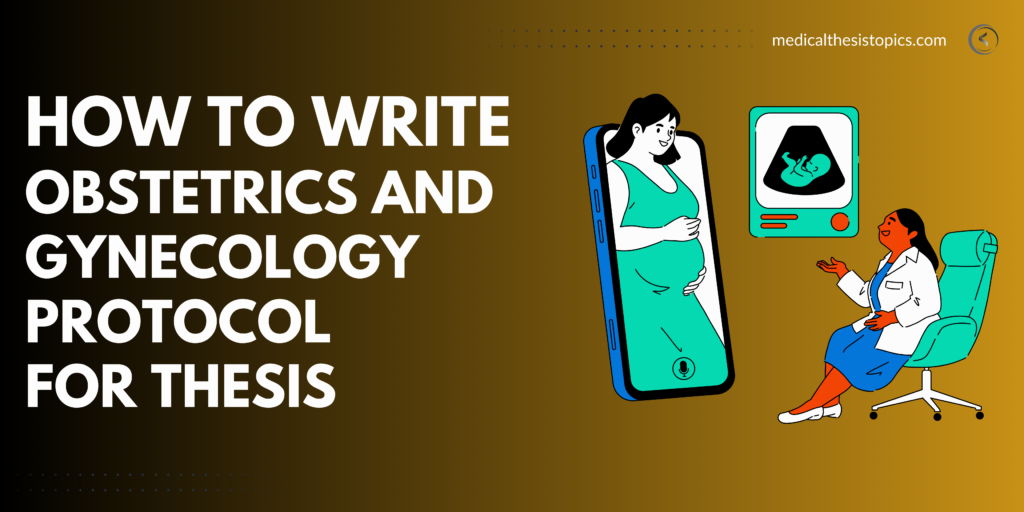Thesis Synopis/Thesis Protocol for MD/MS and DNB

Embarking on the journey of writing a thesis is a significant milestone in the academic and professional life of medical students pursuing MD/MS and DNB programs. At the heart of this research endeavour lies the crucial element known as the “thesis protocol.” In this comprehensive guide, we’ll delve into the essentials of crafting a robust protocol tailored specifically for MD/MS and DNB students.
Understanding the Basics
1. Choosing a Research Topic:
It is said that a good start is half the battle won. I’ve seen many resident who in the enthusiasm of getting PG seat of dream will choose complicated topics only to regret later. IN your final year of MD/MS you will be preoccupied with studies and if there is any mistake in your thesis and it is returned for corrections then it will be very stressful for you near exams. This is to be extrememly important for DNB people as their thesis would be reviewed by people outside state and university. Choose a topic which is important and ‘not complicated’
2. Defining Protocol in MD/MS and DNB:
A thesis protocol, in the context of MD/MS and DNB programs, serves as the compass for the research journey. It is not merely a set of guidelines; it is the blueprint that shapes the entire trajectory of the thesis.
3. Components of a Thesis Protocol:
Breaking down the components—introduction, objectives, methodology, and more—we’ll explore how each element contributes to the robustness of the protocol, offering a roadmap for students navigating the complexities of medical research (For details of each of these sections visit the thesis protocol/thesis synopsis section of specific speciality given below).
4. Importance in the MD/MS and DNB Journey:
Beyond the academic realm, we’ll uncover the broader implications of a well-prepared thesis protocol, shedding light on its role in shaping future medical practice and contributing to the overall development of medical professionals.
5. Tips for Crafting an Effective Thesis Protocol:
Practical advice and insights into common pitfalls will equip MD/MS and DNB students with the knowledge needed to weave a narrative that stands out amidst the sea of research proposals (See details of how to write thesis synopsis/thesis protocol section of specific speciality given below).
6. Crafting the Introduction:
The introduction sets the stage for the entire thesis. We’ll discuss guidelines for crafting a compelling introduction, emphasizing clarity and purpose (For details of writing introduction visit the thesis protocol/thesis synopsis section of specific speciality given below).
7. Defining Research Objectives and Questions:
Formulating clear and achievable objectives and crafting guiding research questions are pivotal steps. This section will guide MD/MS and DNB students through this crucial phase. (For research questions, primary aim, primary objective and secondary objectives visit the thesis protocol/thesis synopsis section of specific speciality given below).
8. Methodology: Designing Your Research Plan:
An overview of different research methodologies and tips for selecting the most appropriate approach will empower students to design a robust research plan. (For Materials and Methods visit the thesis protocol/thesis synopsis section of specific speciality given below).
9. Ethical Considerations:
Ethical practices are non-negotiable in medical research. Make sure your topic doesn’t unnecessarily expose the patients to harmful investigations such as ionizing radiation, experimental drugs and invasive procedures when non-invasive alternatives are available,
10. Writing the Conclusion and Future Directions:
Summarizing key findings and discussing potential future research directions will be explored, ensuring that the conclusion of the thesis protocol is both impactful and forward-looking.
11. Formatting and Style:
Maintaining a professional format and adhering to common citation styles are crucial aspects. Practical tips will guide MD/MS and DNB students in presenting their work with precision. Always use AMA style of references in Bibliography unless specified by your university.



















